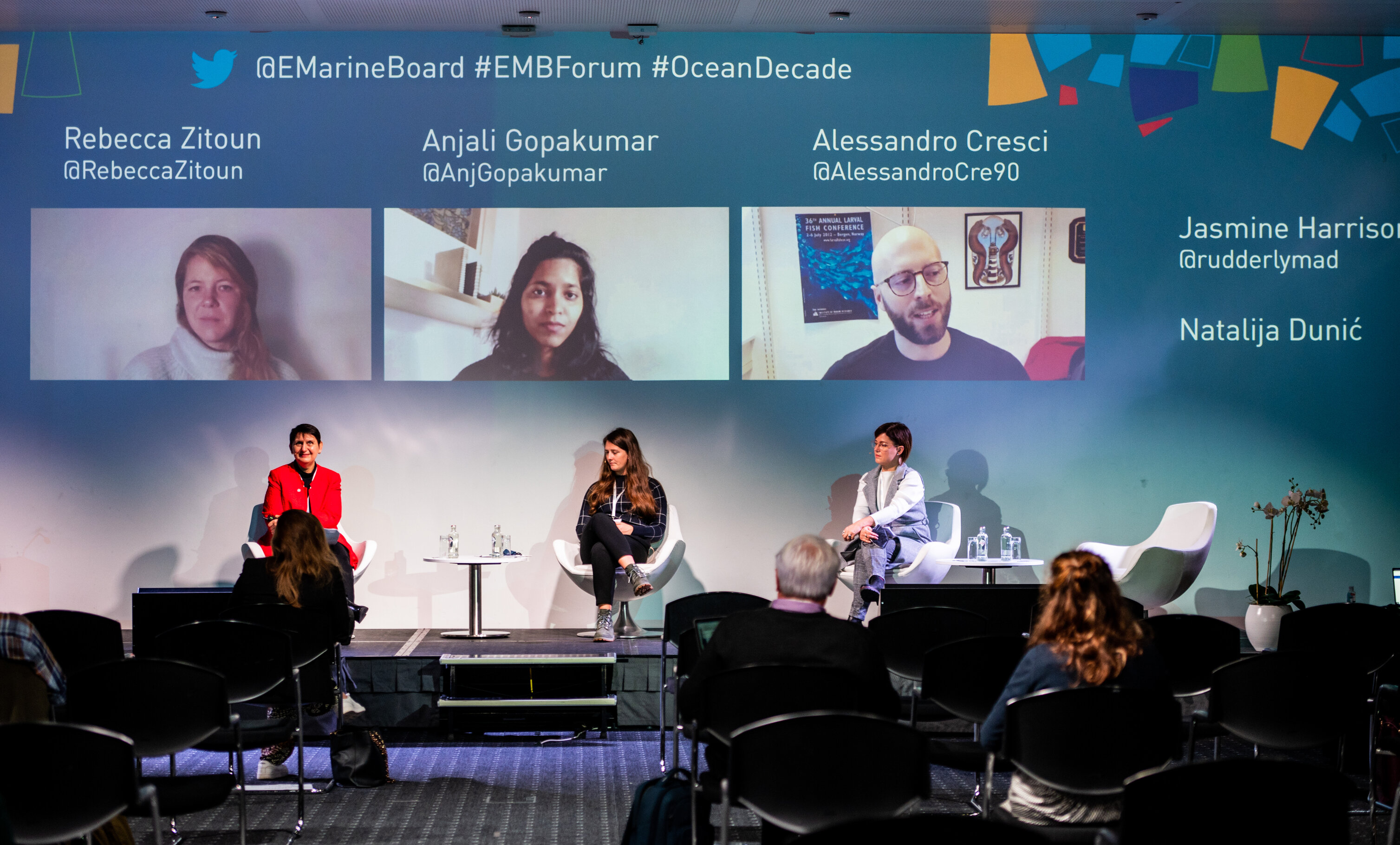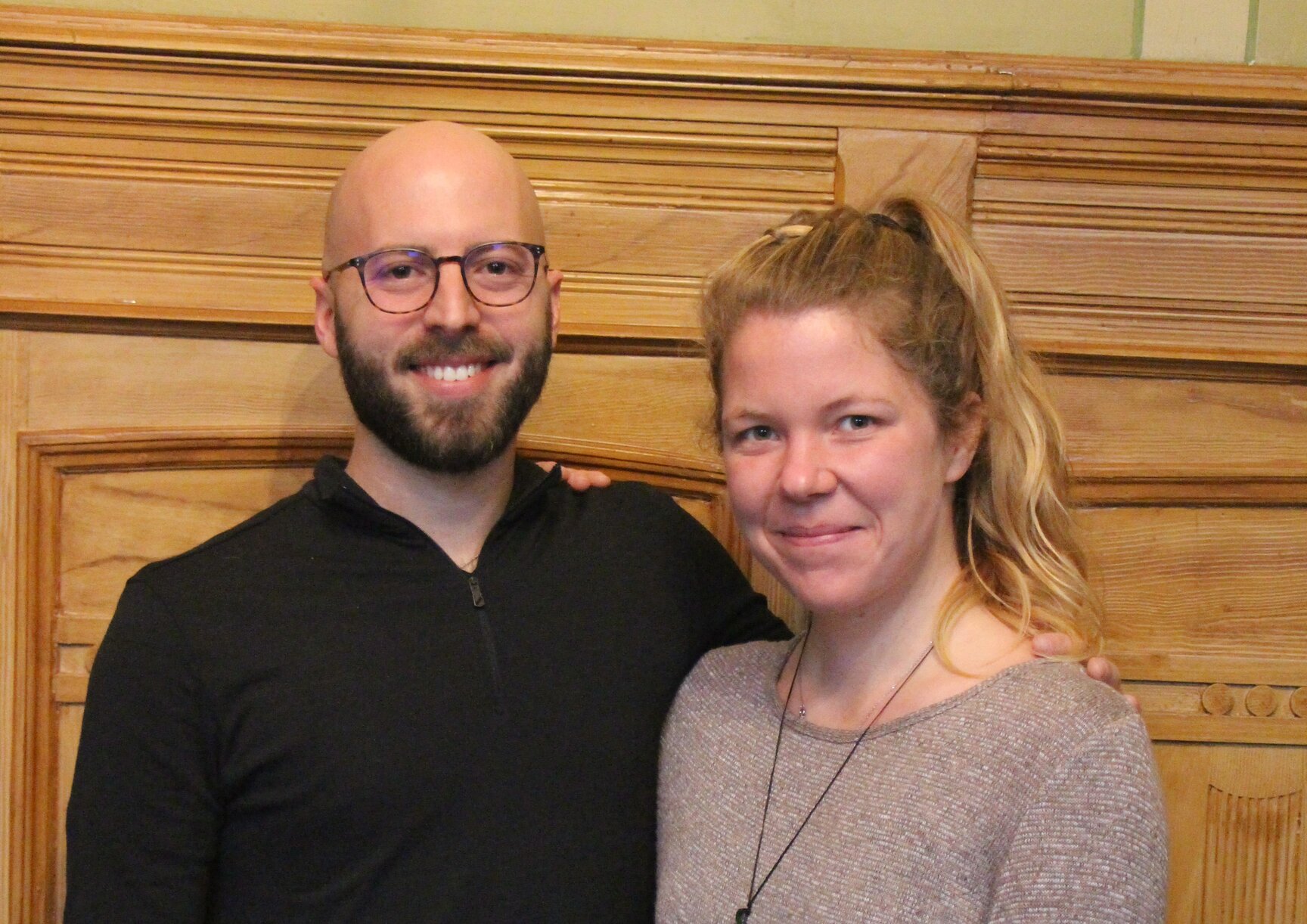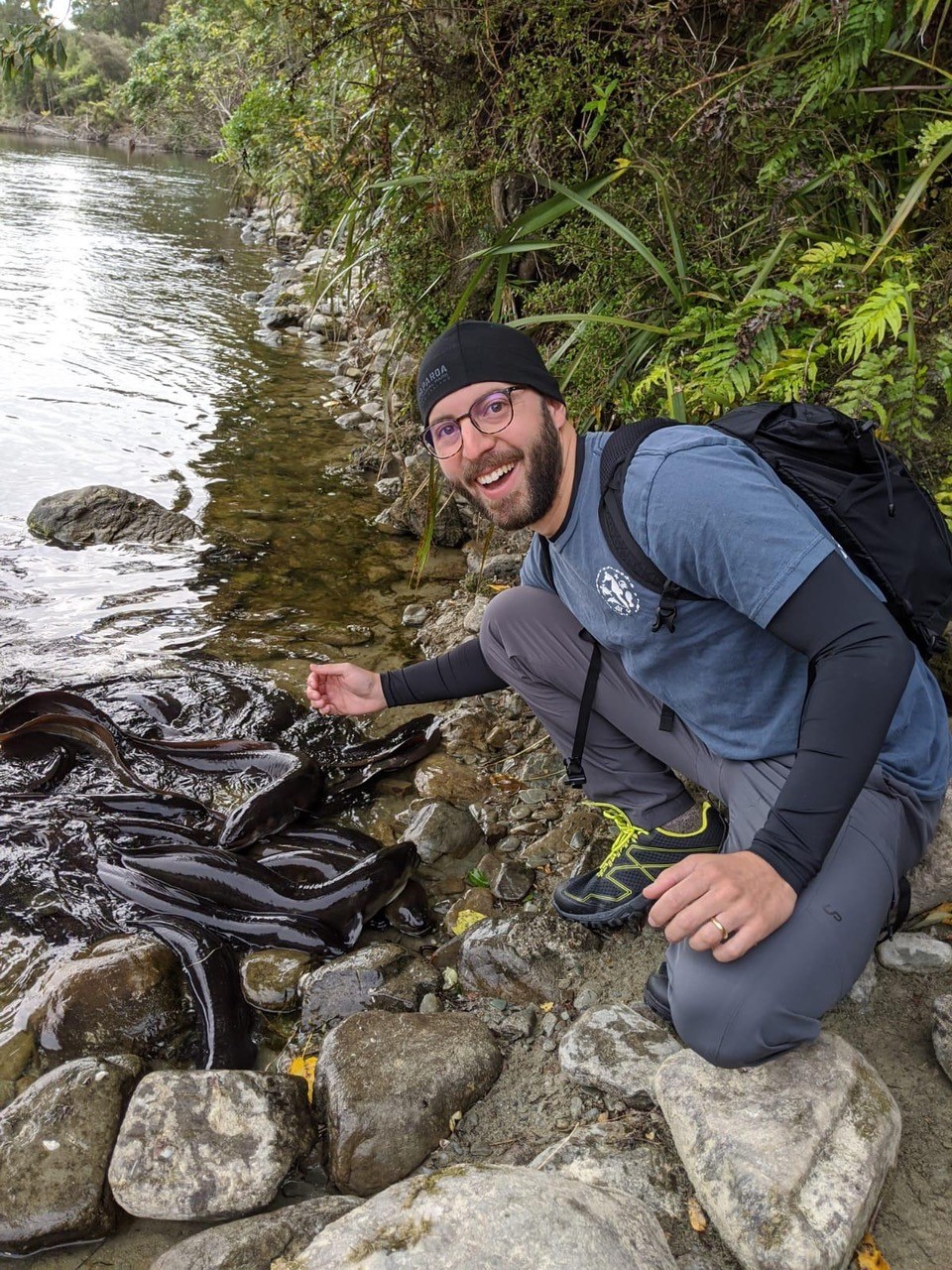I think of myself as an Ocean and fish enthusiast, and I wonder about the underwater world for a significant portion of my day. The drive I have always had towards the Ocean is strong, powerful, and sometime overwhelming. Such an inner voice could not be ignored. So I decided to make of Ocean my everyday life and pursue what it had been my dream since I was a little kid – to become a marine scientist and study the secrets held beneath the sea.
I have conducted complex experiments, published impactful scientific articles and spent so many hours analyzing data. As many of my peers, I have been diving down, deep into my research field. However, the more I learnt in my specific discipline, the more I was forgetting to zoom out, look up and observe the broad and complex marine science landscape of today’s world. That is where becoming a Young Ambassador (YA) for the European Marine Board (EMB) helped me improve and opened my eyes.

The EMB Young Ambassadors speaking at the 8th EMB Forum on 1 December 2021. Image Credit: Michael Chia
The EMB is a unique organization in Europe. The old continent is fragmented into so many diverse countries, with different languages, cultures, and governments. However, the Ocean is borderless, it’s One. Thus, how do we manage and protect it in such a complex geopolitical landscape? That’s where the EMB comes into play – it bridges the gap between marine science and marine policy in Europe – a gap that is so difficult to fill. To fulfil this task, the EMB also invested in a Young Ambassador program to involve young scientists into today’s European marine science-policy link.
I became a YA back in 2020. When I first started, I had no clear expectation of where this journey would take me. What would I have accomplished as a YA? Would I develop new skills? Would I expand my network in marine science?
Now, at the end of my experience as a YA, I can say that the two years of ambassadorship exceeded my expectations. I have participated in activities I would have never experienced otherwise. I met senior scientists from many other research fields, participated in a high-level working group on Underwater Noise, I did outreach for graduating students, met Ocean enthusiasts, and even organized a workshop on Science Communication. Being a YA for the EMB changed my outlook on what it means “to be a marine scientist”, towards a more engaging and interactive version of myself.

EMB Young Ambassadors Alessandro Cresci and Rebecca Zitoun at the EMB Autumn Plenary 2021 meeting in Bergen, Norway
Since the early beginning of my story, I spent so many hours digging deep into my research field looking for answers to scientific questions. Before, as a graduating student from the Italian University Federico II di Napoli, then as a PhD student at the Rosenstiel School of Marine and Atmospheric Sciences in the US, and now as a postdoctoral scientist at the IMR in Norway, I have invested all my energy into trying to understand and study the Ocean. The most fascinating questions for me were and have been: where do marine animals want to go? How do they navigate and find their way in the blue vastness of the sea?
So, that’s what I have focused on. I have studied fish orientation and navigation behavior of migrating fish the entirety of my brief career as marine scientist. However, I have now come to understand that as young scientists, we can all do more. We can all engage and collaborate to study the Ocean. There are questions that are just too complex to be answered by any of us as an individual and, therefore, need cooperation with scientists from all disciplines. Ocean circulation, deep sea exploration, coastal resilience, impacts of renewable energy sources, and sustainability of fisheries are just few examples of issues that cannot be tackled without a synergistic and co-creative approach. To achieve that, we all must “look up” and do what we can to engage and collaborate to reach a sustainable Ocean.As an YA, I had the chance to “look up” from my laboratory bench and office desk, and I actively engaged in the marine science-policy landscape. I believe I gave a lot to the program, but I am leaving with the program having given me much more – a new perspective on how to be an impactful marine scientist.

EMB Young Ambassador Alessandro Cresci with New Zealand eels. Alessandro’s PhD investigated how eels migrate across the Ocean